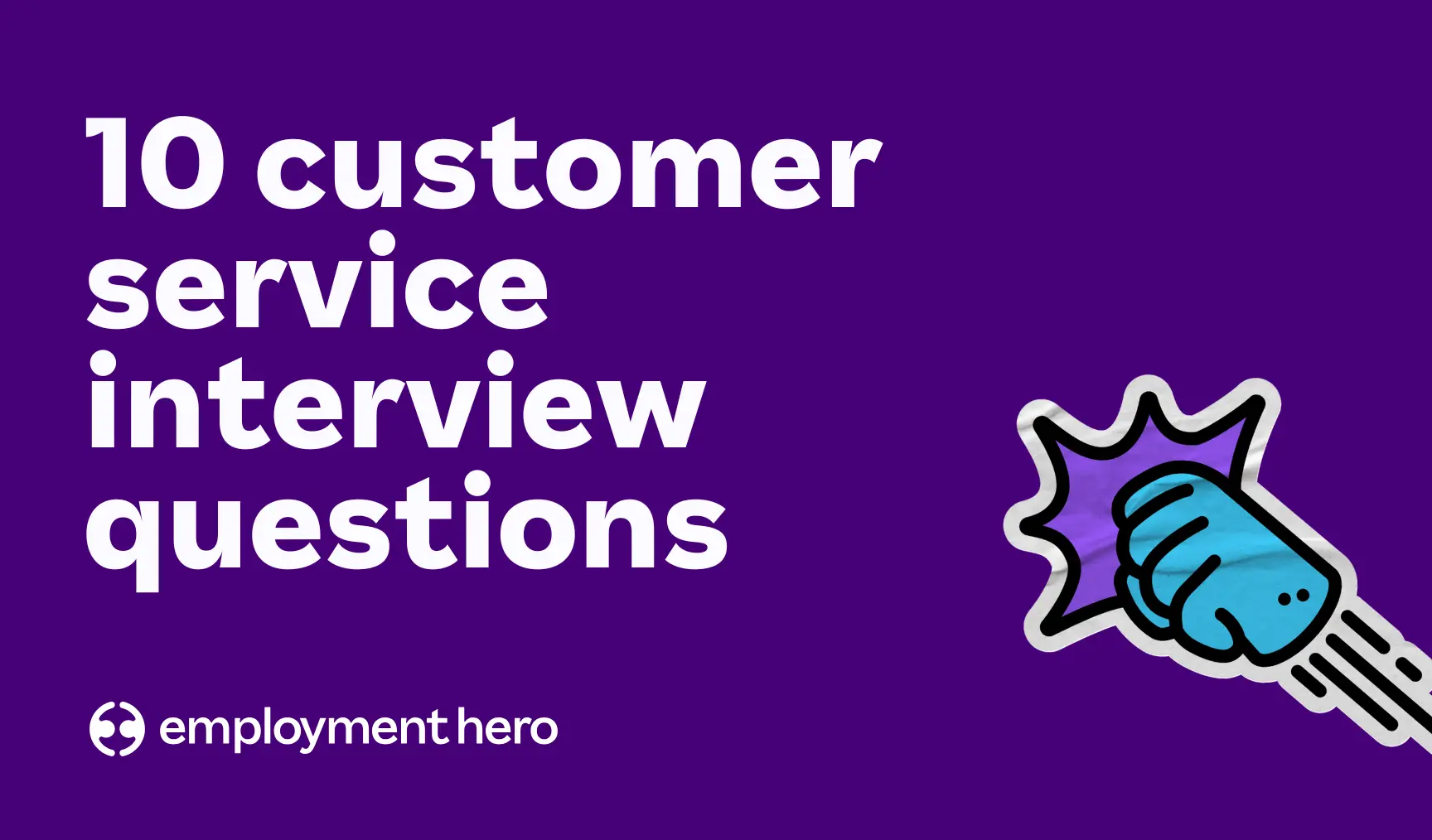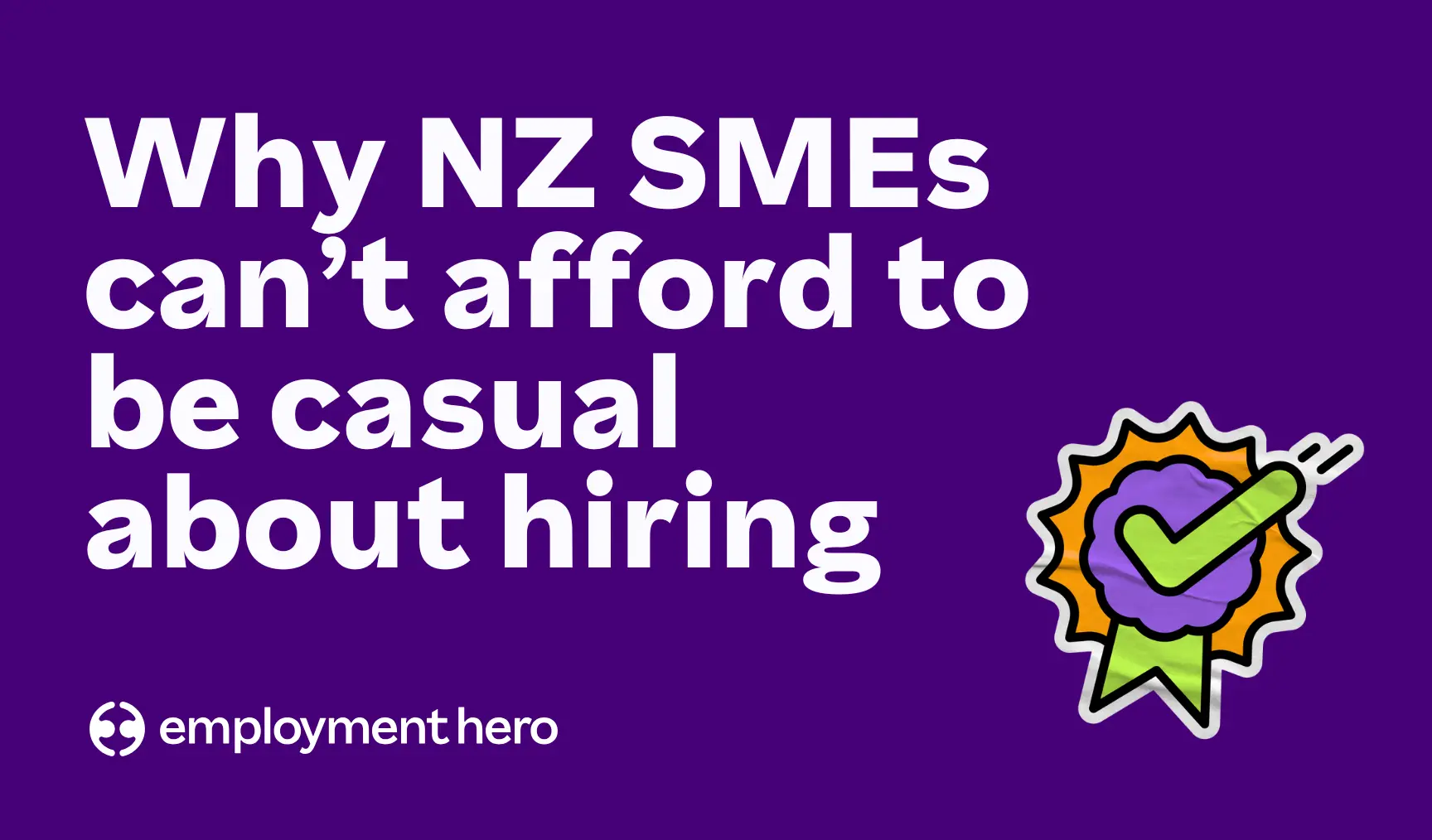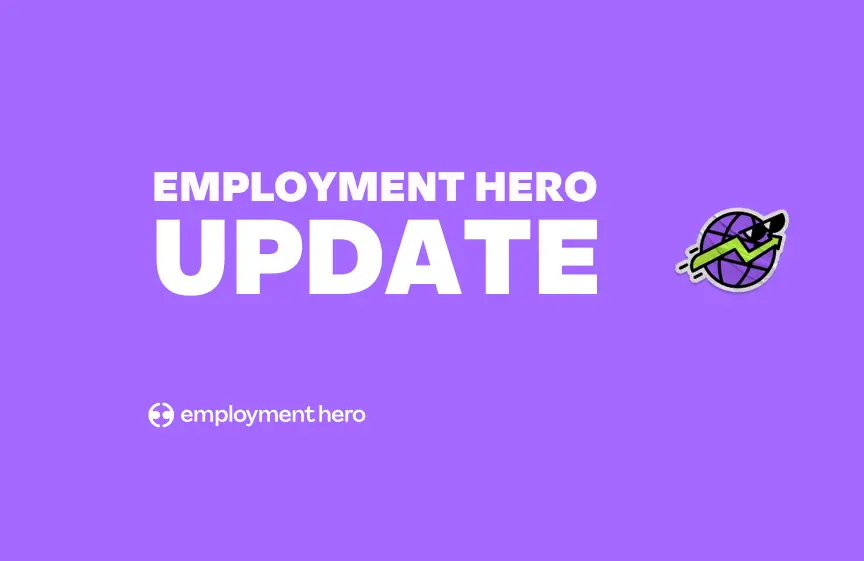Changes to the Accredited Employer Work Visa: What employers need to know
Effective as of 7 April 2024, the New Zealand Government has introduced a number of changes to the AEWV which will affect both employers and employees.

Contents
Back in 2022, the New Zealand immigration system saw a significant streamlining of their work visas. The Accredited Employer Work Visa (AEWV) was introduced to replace six previous visas, endeavouring to simplify the overall process for both migrants and their employers.
It was a two-part system – New Zealand employers had to apply for accredited status, and migrant workers had to apply for the AEWV once they’d received a job offer from an accredited company. Now, as of 28 March 2024, there are 33,977 accredited employers in the country. A whopping 115,483 AEWV applications have been processed since the scheme’s introduction in 2022.
Effective as of 7 April 2024, the New Zealand Government has introduced a number of changes to the AEWV which will affect both employers and employees. We’re here to break down exactly what they mean for you and your business.
Baseline rights and responsibilities for AEWV holders and their employers
It’s important that everyone who is a part of the Accredited Employer scheme is aware of the rights they hold – and the limits of the conditions they operate under.
Rights for AEWV holders
Those who are hold an Accredited Employer Work Visa have the right to:
- Work in New Zealand for the same accredited employer.
- Study for up to three months in any 12 month period, or complete study required as part of their employment.
- Stay in New Zealand for up to 5 years – although the exact length depends on conditions.
- Apply for certain residency visas once they reach the correct criteria (Straight to Residence Visa, Work to Residence Visa, Care Workforce Work to Residence Visa or Transport Work to Residence Visa).
- Use skilled work experience to claim points towards the Skilled Migrant Category Resident Visa (if eligible).
Responsibilities for Accredited Employers
Employers can get accredited to hire migrant employees for up to 5 years, and can apply for 1 of 4 different levels of accreditation through Immigration New Zealand. Accredited employers have to meet the following basic requirements in order to maintain their accredited status:
- Comply with New Zealand employment laws and standards.
- Provide important information related to their migrant employee’s re-settlement in New Zealand, such as how to get an IRD number, specific job hazards, transport and accommodation options and Citizens Advice Bureau services.
- Give sufficient time to complete Employment New Zealand’s learning modules on employment rights during work hours.
The latest changes to the AEWV
Immigration Minister, Hon Erica Stanford, announced a raft of changes to the scheme on 7 April 2024, effective immediately. The changes were cited as being to ‘ensure New Zealand is attracting the skills it needs, and reducing the vulnerability of migrants to exploitation.’
The changes are as follows…
Changes for accredited employers
Employers now have to go through a number of increased checks, and have to meet a number of new requirements to hire an AEWV holder.
Minimum hours
All AEWVs will now come with the condition that migrants are employed for at least 30 hours a week. Employers may not employ visa holders on agreements with hours less than that.
Skill checks
Employers must now take ‘reasonable steps’ to ensure that a migrant is suitably skilled before formally offering the role (g. A practical test or documents that support their CV).
They must also ensure that a migrant meets one of the newly introduced criteria for their work visa, before asking them to apply for an AEWV. They must meet one of the following:
- The job they will be taking is on the Green List and they meet the designated role’s job requirements.
- The job they will take pays at least $59.32 an hour (twice the February 2023 median wage).
- They have 3 years or more of relevant work experience.
- They have a qualification of Level 4 or higher on the New Zealand Qualifications and Credentials Framework (NZQCF).
Breaches of compliance
Rules have been tightened for employers found in breach of accreditation. They may have their accreditation suspended while being actively investigated for any type of breach. Prior to these changes, suspensions had only been for certain breaches.
Hire according to ANZSCO skill levels
ANZSCO skill levels will now factor into the assessment of AEWV applications – we’ll go into this further down in the AEWV applicants’ changes.
This will be a challenging one for some employers. The ANZSCO level classification can be complex, as it often considers an employee’s level of education and training in their individual role. We’d highly recommend carefully referring to the classification and checking it against your current AEWV job role, so you know any potential challenges that could arise.
Proof of talent shortage
If your vacant role is not on the Green List and pays less than twice the February 2023 median wage, you already need to advertise the role locally in New Zealand first. However, there is a new and specific definition of ‘suitable and available New Zealanders’, and you will need to adhere to that definition when declaring that no applicants met it.
Inform Immigration NZ of employee exits
A brand new change is that accredited employers will have to let Immigration New Zealand know if an AEWV holder leaves their employment a month or more before their visa expires. They must let Immigration New Zealand know within ten days, or risk a breach of their conditions.
Please note that this will not apply to existing accredited employers until they renew or upgrade their accreditation status.
The end of franchisee accreditation
The franchisee accreditation category for the AEW was disestablished on 16 June 2024, meaning that franchisee employers will have to switch to one of the other employment accreditation types.
Changes for new AEWV applicants
Obtaining an AEWV will become more challenging to certain applicants, with a few specific rule changes.
New minimum skills
As already mentioned in the accredited employer section, AEWV applicants will need to show evidence of their work experience and skills relating to the role they have secured.
Additionally, unless their role is on the Green List or paid twice the median wage, they must now have one of the following:
- At least three years relevant work experience, or
- A relevant qualification at level 4 or above of the New Zealand Qualifications and Credentials Framework (NZQCF).
A minimum standard of English for some roles
If the role is ANZSCO level 4 or 5, AEWV applicants must show that they can speak and understand English. This will not apply to those who have already applied for the visa prior to 7 April 2024 or to partners or children of an AEWV applicant.
Shorter visa lengths for certain jobs
For ANZSCO level 4 and 5 jobs that are not on the Green List, not in transport and care sector agreements, or not earning 1.5 times the median wage, there is a new shorter visa length. The maximum visa length has been reduced to two years, and the maximum continuous stay in New Zealand on AEWVs is now three years.
This applies to those who applied for their first AEWV on or after 7 April 2024 or before 21 June 2023.
Changes for existing AEWV holders
For those who applied for their first AEWV before 21 June 2023 and are working in an ANZSCO level 4 and 5 job, paying at or above the required AEWV, and hold a three year visa, they won’t be able to access the maximum time of three years should they reapply for the visa.
An exception applies for those in an ANZSCO level 4 and 5 job who are already on a pathway to residence.
Additionally, from 26 June 2024, people holding an AEWV at ANSO levels 4 and 5 without a pathway to residency will no longer be able to support work, visitor or student visa applications for their partners and dependent children.
Additional changes to the Green List
At the same time as the AEWV announcements, there were some changes to roles on the Green List. This may be relevant if you’re checking whether any of your employees may be exempt to some of the rules named above.
Six roles have now been added to the Green List:
- Straight to Residence Category
- Aviation Engineer
- Naval Architect
- ICT Database and Systems Administrator
- Mechanical Engineering Technician
- Aircraft Maintenance Engineer
- Work to Residence Category
- Corrections Officer
The previous Government had also announced the following roles to be later added to the Green List. The current Government has confirmed that these roles will no longer be considered and will remain off the Green List indefinitely.
- Paving Plant Operator
- Metal Fabricator
- Pressure Welder
- Fitter (General)
- Fitter and Turner
- Fitter-Welder
- Metal Machinist (First Class)
- Panel Beater
- Vehicle Painter
- Road Roller Operator
Employment Hero is here to help accredited employers
If you’re an accredited employer with one or more employees on an Accredited Employer Work Visa, we know this is a lot to take in. In the first instance of any confusion, we’d always recommend getting professional legal advice. These changes can be complex to get your head around, particularly when it comes to ANZSCO definitions.
As a provider of HR and Payroll solutions in New Zealand, Employment Hero is here to make the world of people management a whole lot easier – so you can spend more time keeping up with critical updates like this one. Our all-in-one software can help you easily manage your employees regardless of visa status, acquire comprehensive data across your entire workforce and download critical reporting information when required. Plus, we make shift management, rostering and payroll a breeze.
For more information and to speak to one of our team, reach out to us today.
Disclaimer: The information in this blog is current as at 4 July 2024, and has been prepared by Employment Hero Pty Ltd (ABN 11 160 047 709) and its related bodies corporate (Employment Hero). The views expressed in this blog are general information only, are provided in good faith to assist employers and their employees, and should not be relied on as professional advice. The Information is based on data supplied by third parties. While such data is believed to be accurate, it has not been independently verified and no warranties are given that it is complete, accurate, up to date or fit for the purpose for which it is required. Employment Hero does not accept responsibility for any inaccuracy in such data and is not liable for any loss or damages arising either directly or indirectly as a result of reliance on, use of or inability to use any information provided in this article. You should undertake your own research and to seek professional advice before making any decisions or relying on the information in this blog.
Related Resources
-
 Read more: 10 customer service interview questions for employers
Read more: 10 customer service interview questions for employers10 customer service interview questions for employers
Hiring for a customer service role? These 10 interview questions will help you find the right person for the job.
-
 Read more: Still Coasting? Why NZ SMEs Can’t Afford to Be Casual About Hiring
Read more: Still Coasting? Why NZ SMEs Can’t Afford to Be Casual About HiringStill Coasting? Why NZ SMEs Can’t Afford to Be Casual About Hiring
The casual approach to hiring is costing you – find out how to snap out of it.
-
 Read more: SEEK Cut the Cord. Here’s What We’re Doing About It.
Read more: SEEK Cut the Cord. Here’s What We’re Doing About It.SEEK Cut the Cord. Here’s What We’re Doing About It.
Seek is ending Employment Hero’s API access. Read about what we’re doing and how we are building a faster and…










